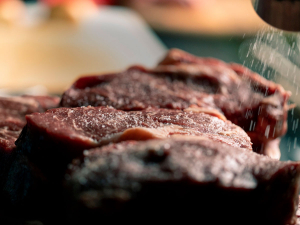The monthly value of goods exports in October 2021 rose $552 million (12%) from October 2020, to $5.3 billion, according to Statistics NZ.
The leading export commodity group movement was milk powder, butter, and cheese up $223 million (18%) to $1.5 billion.
Milk powder rose $134 million (19%) due to an 18% rise in price per kilogram.
Meat exports were up $116 million (25%), to $584 million.
The increase in exports to China accounted for 43% of this rise.
Total sheep meat exports rose $62 million (25%), and the price per kilogram increased 26%.
“Total goods exports in October 2021 were up on the same month of 2020, led by dairy products, beef, and sheep meat,” says international trade manager Alasdair Allen.
“The rises in primary commodities were all led by higher export prices.”
Food preparations (a commodity group that includes infant formula) also decreases, down $66 million.
Annual exports of food preparations in the year ended October 2021 have fallen $308 million (13%) from the year ended October 2020, to $2.1 billion.



















